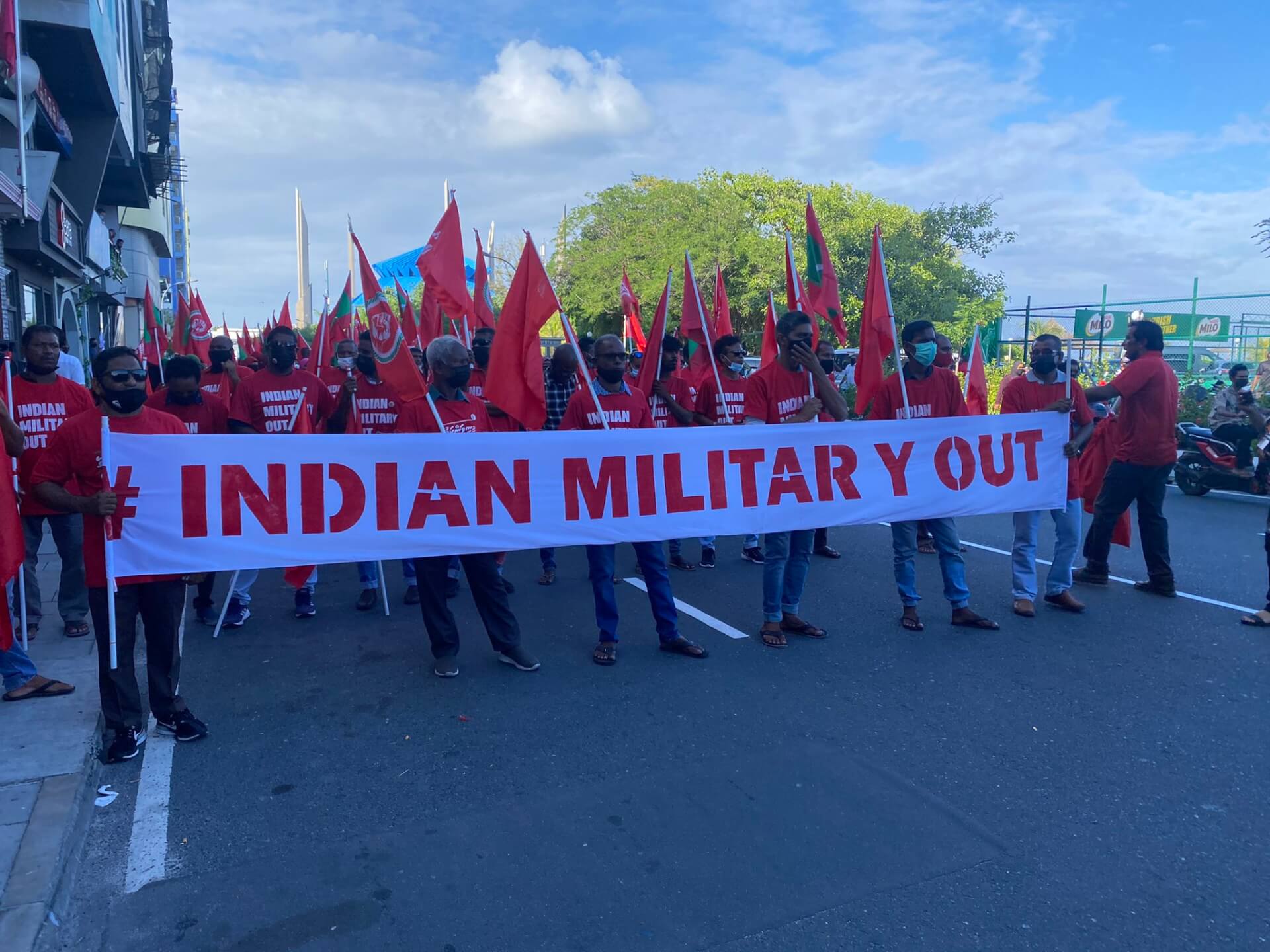On Wednesday, the Maldivian government strongly condemned local media for attempting to “spread false information” about its ties with India, which it hailed as the Maldives’ “closest ally and trusted neighbour.”
The statement was in response to the #IndiaOut social media campaign that criticises President Ibrahim Mohamed Solih’s ‘India First’ foreign policy. Campaigners have hit out at India’s military presence in the country and opposed the decision to allow India to open a consulate in southern Addu, believing it will pave the way for India to further expand its military presence.
The opposition coalition in the Maldives launched the India Out campaign in 2018, criticising the government’s decision to sign “secret agreements” with India and allowing it to establish military bases in the country. The campaign led to several protests in August 2020 that called for the immediate expulsion of the Indian military from the country. In January of this year, several demonstrators gathered outside the Indian High Commissioner’s residence, holding up “India out” signs.
Also Read: What’s Driving the “India-Out” Campaign in the Maldives?
These criticisms have been largely popularised by Dhiyares, which is popularly known as the mouthpiece of the opposition coalition in the Maldives, along with its partnering outlet The Maldives Journal.
The statement, which was released by the country’s Ministry of Foreign Affairs, said that the criticism regarding the country’s close relations with India undermined the security and sovereignty of Maldives. Further, they called the allegations “misguided” and “unsubstantiated.”
The foreign ministry further clarified that the India Out campaign does not represent the opinion of the masses, who continue to support relations with India. The release said that the campaign is merely an attempt by a small group of individuals led by the opposition to tarnish the Maldives’ “long-standing cordial ties with India.”
The statement also celebrated India and the Maldives’ close ties in maritime security and coastal surveillance, and highlighted how bilateral relations have benefitted the country in its fight against piracy, narco-trafficking, climate change, and human trafficking.
Nevertheless, according to an official cited by The Maldives Journal, the statement was only released after New Delhi called on Male to bring an end to the movement through “any means possible.” It also clarified this week’s demonstrations, the second-largest India Out protests so far, had acquired all required permissions from the Maldives Police Service. In addition, the article claimed that the government has now banned any protests criticising India.
Since President Ibrahim Mohamed Solih replaced Abdulla Yameen in 2018, the Maldives has realigned its policies to develop closer ties with India compared to Yameen’s pro-China approach. As a result of the Solih government’s “Neighbourhood First” policy, India has been working with the Maldives to boost infrastructure and connectivity. In June 2020, India announced the commencement of a cargo ferry service, which presents an opportunity for India to emerge as the Maldives’ largest trade partner. In addition, the Maldives has also rejected Pakistan’s attempt to raise the Jammu and Kashmir issue at the Organisation of Islamic Cooperation. Simultaneously, India seeks closer ties with the Maldives to push it further away from the clutches of China.

